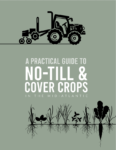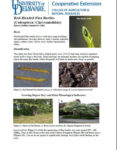Showing 1-2 of 2 results

A Practical Guide to No-Till and Cover Crops in the Mid-Atlantic
No-till and cover crops are among the most cost effective tools to reverse soil and carbon loss and improve soil health; the economic, agronomic and environmental benefits of these practices are well known within the farming community. Transitioning from conventional farming to no-till, and incorporating the use of cover crops, requires a higher level of […]

Control of Red-Headed Flea Beetles
Red-headed flea beetles have a wide host range including chrysanthemums, forsythia, hibiscus, lamb’s-quarter, pigweed, zinnia, sedum, asters, Salvia, roses, hollies among many others.